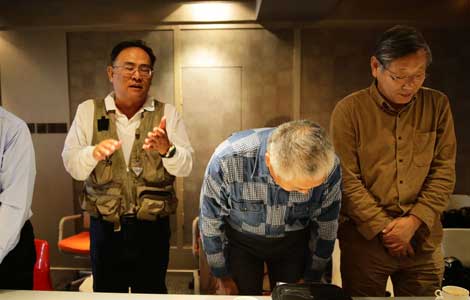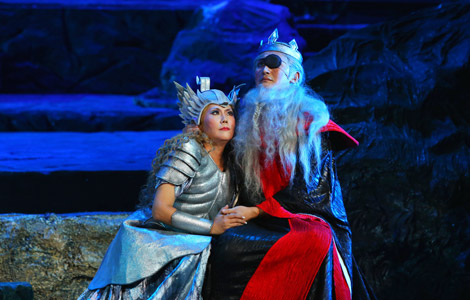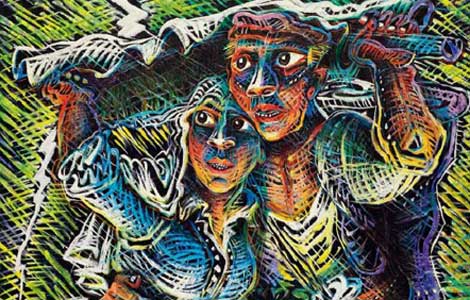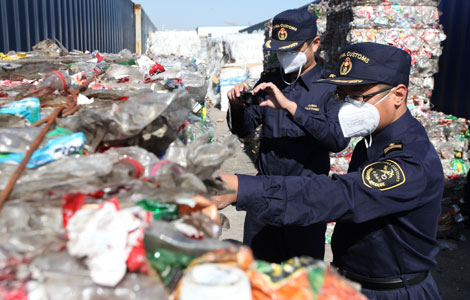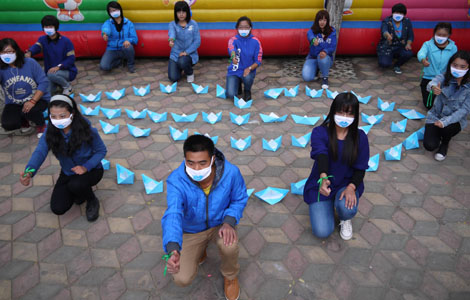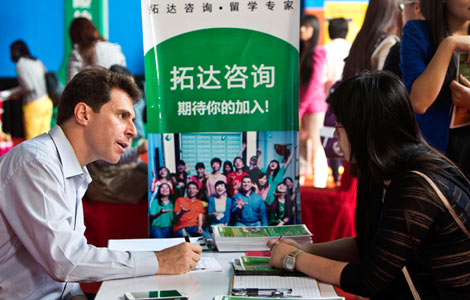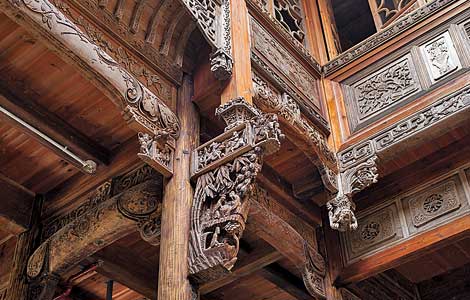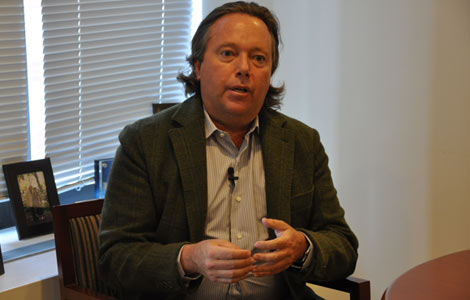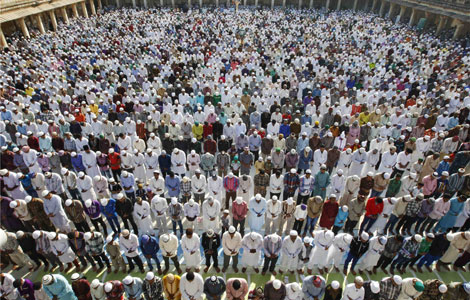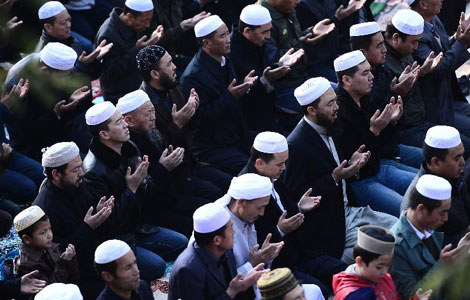Elderly group sorry about roles in turmoil
Updated: 2013-10-18 01:35
By ZHAO YINAN in Beijing and WANG ZHENGHUA in Shanghai (China Daily)
|
||||||||
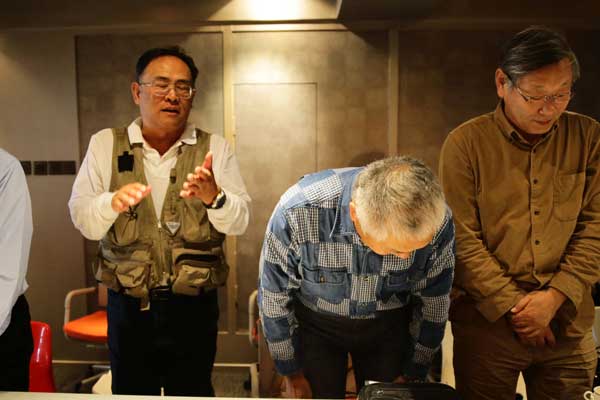 |
|
Chen Xiaolu (second from right), son of a former top leader, bows to apologize on behalf of schoolmates at a gathering on Oct 7 for disgracing teachers during the "cultural revolution" (1966-76).[CHEN JIAN / FOR CHINA DAILY] |
Former schoolmates express regret for persecuting teachers decades ago
Some elderly Chinese are publicly apologizing for having persecuted the innocent during the "cultural revolution" (1966-76) in a bid to remind young people not to forget history.
Looking back to that painful memory, Chen Xiaolu, son of a former top leader, said he could not hide his deep regret.
On a brisk October morning in Beijing, the 67-year-old met with eight former teachers and 14 schoolmates. The get-together, however, was a somber affair and did not have the joyous spontaneity normally associated with old friends meeting up again to reminisce.
It was a gathering clouded by regret and forgiveness.
As chairman of the alumni association for the classes of 1966 to 1968 at Beijing No 8 Middle School, silver-haired Chen stood up, bowed deeply and apologized on behalf of the students for having disgraced and beaten teachers during the "cultural revolution".
Other alumni followed suit. Words expressing regret mingled with words trying to give comfort. Tears were wiped from faces.
Before the meeting, Chen published an online statement on the alumni's blog, apologizing for being "directly responsible for denouncing and sending people to labor camps", and said his deep regret to the teachers and students in the school was "late, but necessary".
On Aug 8, 1966, the Central Committee of the Communist Party of China led by former leader Mao Zedong decided to launch the "cultural revolution", a nationwide campaign that caused untold suffering to millions.
Son of Chen Yi, former vice-chairman of the Central Military Commission of the Communist Party of China, the younger Chen studied at the school during the period and was a student leader.
Out of fear of being disgraced as a counter-revolutionary, Chen Xiaolu said he had "actively taken part" during the initial stages and then "didn't have the guts to stop the inhuman behavior" when things started to get out of control.
"It was a frightening time. My formal apology came too late," he said, "but it is something I must do, for my soul, for the progress of society and for the future of the nation."
Chen is not the only elderly person to express remorse.
Zhang Hongbing said he is filled with guilt about what happened to his mother, Fang Zhongmou, who was executed for criticizing chairman Mao Zedong at home during the "cultural revolution". Zhang and his father tipped-off the authorities.
Four decades later, the 59-year-old is seeking government approval to make his mother's tomb a "cultural relic".
He dreams of his mother constantly and is prone to outbursts of anguished crying, Zhang said in an interview in his hometown in Bengbu, Anhui province.
"In the dream, I kneel on the ground, holding her hands and tell her that the unfilial son is on his knees apologizing."
Explaining his behavior, Zhang said almost everyone was engulfed in the atmosphere and there was nowhere to escape.
"The kind sides of my personality were thoroughly, irretrievably wiped out," he said. "I hope by listening to me, people can understand what happened."
Former premier Wen Jiabao warned in his last news conference before leaving office that tragedies such as the "cultural revolution" could happen again to China if the country failed to push political reforms to uproot problems in society.
Zhang Lianyuan, a retired teacher at Beijing No 8 Middle School who suffered during the "cultural revolution", said that to ensure similar events never happen again, China should strictly follow the rule of law, according to a report on the People's Daily website.
Despite the fact that more people are apologizing, political experts urged the public not to attach too much political implication to it.
Tang Zhouyan, a researcher on Mao Zedong Thought at the Party's Literature Research Office, said reflecting on the past to build a better today is a common phenomenon, especially for those in old age.
"Such individual remorse can hardly grow into social introspection in a short time."
Liu Shanying, a political researcher at the Chinese Academy of Social Sciences, said the top leadership reached a consensus on the political tragedy in the early 1980s that still applies.
History, truthfully recorded, will always act as a deterrent, Liu said.
Hou Liqiang contributed to this story.
Most Viewed
Editor's Picks

|

|

|

|

|

|
Today's Top News
US not budging on its arms restrictions on China
Can cranberries catch on in China?
Asia-Pacific pays executives world's highest salaries
US debt deal a temporary fix
China is No 1 oil importer
Millennials worried about finances
Elderly group sorry about roles in turmoil
Investigation to diagnose nation's TCM resources
US Weekly

|

|
